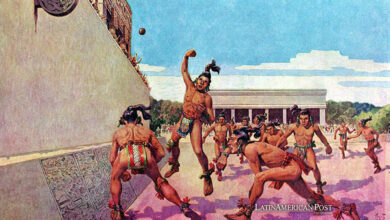Legendary Luis Suárez Bids Farewell to Uruguay’s La Celeste

Uruguayan forward Luis Suárez, one of soccer’s most controversial and gifted players, announced his retirement from international play at 37. His final appearance for La Celeste will be during the 2026 World Cup qualifier against Paraguay, marking the end of an extraordinary career filled with unforgettable highs and infamous lows.
In a sport that often casts its stars as either heroes or villains, Luis Suárez has walked the tightrope between both identities with an ease that has left fans, critics, and opponents alike in awe. As he prepares to lace up his boots for the final time in a Uruguayan jersey, the soccer world is left to reflect on the career of a player whose name has become synonymous with both brilliance and controversy.
The Rise of a National Hero: Suárez’s Early Years
Luis Suárez’s journey from a young boy playing street soccer in Salto, Uruguay, to becoming one of the world’s most feared strikers is the stuff of legends. Born in 1987, Suárez’s early years were marked by a relentless drive and determination to rise above his humble beginnings. His talent was evident from a young age, and it wasn’t long before he was scouted by Montevideo’s Nacional, where he began his professional career.
Suárez’s raw ability and tenacity on the pitch quickly caught the attention of European scouts, leading to a move to Dutch side FC Groningen in 2006. His impact was immediate, and within a year, he had secured a transfer to Ajax, one of Europe’s most prestigious clubs. Here, Suárez began to make a name for himself, finishing as the Eredivisie’s top scorer in the 2009-2010 season and earning the nickname “El Pistolero” for his deadly finishing.
But it wasn’t just his goal-scoring prowess that set Suárez apart—his fiery temperament and willingness to do whatever it took to win. These traits would define his career in club soccer and on the international stage, where he quickly became a national hero for Uruguay.
Moments of Glory and Controversy
Suárez’s international career began in 2007 and has been a rollercoaster. His debut for La Celeste came against Colombia, a match that foreshadowed his career’s dual nature—he was sent off after receiving two yellow cards. Despite this rocky start, Suárez quickly established himself as a critical player for Uruguay, helping the team qualify for the 2010 World Cup in South Africa.
During the World Cup, Suárez announced himself to the world in the most dramatic fashion. His two goals against South Korea in the round of 16 secured Uruguay’s place in the quarter-finals, but his infamous handball against Ghana would define his tournament. In the dying moments of extra time, with Uruguay facing elimination, Suárez deliberately blocked a goal-bound shot with his hand. The resulting penalty was missed, and Uruguay won the match in a penalty shootout. Suárez’s actions were condemned by many, but in Uruguay, he was hailed as a hero, willing to sacrifice himself for the team’s good.
This willingness to push the boundaries would haunt Suárez in the following years. In 2014, during a World Cup group stage match against Italy, Suárez bit Italian defender Giorgio Chiellini—a shocking act that earned him a nine-game ban from international soccer and widespread condemnation. It wasn’t the first time Suárez had been involved in such an incident; he had previously bitten players while playing for Ajax and Liverpool.
These moments of madness, however, were interspersed with flashes of pure genius. Suárez’s ability to score goals from seemingly impossible positions, his vision, and his work rate made him one of the most feared strikers in the world. Despite the controversies, he was an indispensable part of the Uruguayan national team, leading them to victory in the 2011 Copa America, where he was named Player of the Tournament.
A Record-Breaking Journey
Luis Suárez’s impact on Uruguayan soccer cannot be overstated. Over a career spanning nearly two decades, he has become La Celeste’s all-time top scorer, with 69 goals in 142 appearances. These numbers, however, only tell part of the story. Suárez’s contributions go far beyond goals; he has been the heart and soul of the team, leading by example on the pitch and inspiring a generation of young Uruguayan soccer players.
His performances at major tournaments have been particularly memorable. At the 2010 World Cup, Suárez’s heroics helped Uruguay reach the semi-finals for the first time since 1970. Four years later, despite the controversy surrounding his biting incident, Suárez was instrumental in Uruguay’s progression to the knockout stages, scoring both goals in a crucial victory over England.
Suárez’s record at the Copa America is equally impressive. In 2011, he was the driving force behind Uruguay’s 15th Copa America title, scoring four goals, including one in the final, and being named the tournament’s best player. His performances in subsequent tournaments, including the 2019 and 2021 editions, further cemented his status as one of the greatest players in Uruguayan history.
However, perhaps Suárez’s most significant legacy is the belief he instilled in his teammates and fans. Uruguay is a small country with just over 3 million people, yet it has consistently punched above its weight on the international stage. Suárez’s relentless drive and refusal to accept defeat have been critical factors in this success. He has shown that with determination, anything is possible—a lesson that will resonate with Uruguayan soccer for years to come.
What Suárez’s Retirement Means for Uruguay
As Luis Suárez prepares to play his final game for Uruguay, there is a sense of celebration and uncertainty. On the one hand, it is an opportunity to honor a player who has given everything for his country and has left an indelible mark on Uruguayan soccer. On the other hand, his retirement leaves a void that will be difficult to fill.
Suárez’s retirement marks the end of an era for La Celeste. Alongside players like Diego Forlán and Edinson Cavani, Suárez has been part of a golden generation that has brought unprecedented success to Uruguayan soccer. These players have set a standard that will be hard to match, and their absence will be keenly felt.
The challenge for the Uruguayan national team is to build on the foundation that Suárez and his generation have laid. The next generation of players will need to step up and take on the responsibility of leading the team forward. This is no small task, but if there is one thing that Suárez’s career has shown, it is that the Uruguayan spirit is unbreakable.
There is also the question of how Suárez will be remembered. Will he be seen as a soccer genius who overcame adversity to achieve greatness, or will his career overshadow the controversies that plagued him? The truth is likely somewhere in between. Suárez’s career has been a study in contrasts—a player who could produce moments of brilliance one minute and acts of madness the next. But regardless of how he is remembered, there is no denying his impact on the game.
The world will watch with bated breath as Suárez takes to the field for the last time in a Uruguayan jersey. It is the end of a chapter and the beginning of a new one. For Suárez, it is a chance to say goodbye on his terms and leave the game with his head held high. For Uruguay, it is a moment to reflect on their journey together and look forward to what comes next.
Luis Suárez’s retirement from international soccer is the end of an era for Uruguay and the world. It is the conclusion of a career that has been as controversial as it has been brilliant, a job that has seen Suárez rise from the streets of Salto to the pinnacle of the sport. As he prepares to play his final game for La Celeste, Suárez can do so knowing that he has given everything for his country and has left a legacy that will endure long after he has hung up his boots.
Uruguay’s challenge is to build on the foundation that Suárez and his generation have laid. It is a daunting task, but one made more accessible by Suárez’s example. His career has been a testament to the power of determination, to the belief that anything is possible if you are willing to fight for it. As Uruguay looks to the future, it can do so with confidence, knowing that it has been guided by one of the greatest players the country has ever produced.
Also read: Argentina’s Glorious Day of Double Soccer and Basketball Olympic Gold in Athens 2004
And so, as Luis Suárez takes his final bow, we say goodbye to a legend. A legend who, for better or worse, has left an indelible mark on the game. He is a legend who, in his own words, will give his life for the team one last time on Friday. Thank you, Luis, for the memories.





